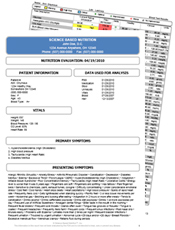Forget the fear of fat! Research indicates a high-fat, moderate-protein, low carbohydrate ketogenic diet is beneficial for numerous health conditions and overall health. What is a ketogenic diet? A ketogenic diet is very low in carbohydrates (sugar/starch), it provides enough protein for good health and allows a very high fat intake. A typical ketogenic meal includes some sort of protein, a source of natural fats (butter, cream, olive oil, avocado oil, coconut oil and ghee) and green leafy vegetables.
When you cut back on your carbohydrates and increase the fat and protein in your diet, it has the effect of helping your body heal itself. Instead of using harmful sugar for energy, your body uses the fat you eat or your stored fat for energy, and this has many positive health effects. Here’s a list of 15 benefits associated with the introduction and continuance of a ketogenic diet.
1. Improved Cardiovascular Risk Factors
The ketogenic diet has the effect of reducing serum insulin and blood sugar, increasing good HDL cholesterol, making LDL cholesterol safer by increasing its particle size, lowering total triglycerides, and improving the ratio of HDL/total cholesterol. These changes result in a reduction of inflammation and overall improved cardiac risk factors.
2. Reduction of Elevated Blood Pressure
The ketogenic diet reduces blood pressure. If you are taking any blood pressure medication and want to start a ketogenic diet, talk with your doctor about monitoring your progress and reducing your blood pressure medication if needed.
3. Reduction of Serum Triglyceride Levels
Carbohydrate consumption is closely tied to blood levels of triglycerides, a potent indicator of heart disease risk. The fewer carbohydrates you eat, the lower your triglyceride readings will be, especially if you suffer from conditions such as insulin resistance or metabolic syndrome.
4. Lower Blood Sugars
As your carbohydrate intake drops, your fasting and after-meal blood sugars will drop. An average of these measurements can be seen on hemoglobin A1C (HbAlc) test. The HbAlc test is a long-term (three month) measure of average blood glucose. Since a ketogenic diet lowers blood glucose, this measurement should drop over time.
5. Lower Baseline Insulin Levels
Lower blood glucose results in lower overall insulin levels. Lower insulin is one of the most powerful benefits of a ketogenic diet, as high insulin levels impact so many other metabolic health factors.
6. Lower Levels of Inflammation and Pain
The ketogenic diet reduces cellular oxidative stress and immune system irritants. This results in lower systemic inflammation and reduced pain. As a result, inflammation in the body decreases. For example research published in the journal METABOLISM shows that levels of C-reactive protein, an inflammatory marker, tend to drop on a ketogenic diet.
7. Less Joint Stiffness and Pain
A ketogenic diet eliminates grain-based foods from your diet. For many, they are perhaps the largest single cause of chronic inflammation, illness and pain, especially muscle stiffness and joint pain.
8. Clearer Thinking
The brain «fogginess» that accompanies a high-carbohydrate diet should disappear. One explanation is that the brain is over 60 percent fat by weight, and the more fat you eat, the better it can maintain itself and work to its full capacity. Cognitive improvements may also be a benefit of lowering brain inflammation.
9. Reduction of Inappropriate Hunger
Ketone bodies dampen the appetite, and fat is very satisfying. You’ll notice at times, you may forget to eat. You may find this is the most amazing part, especially if you struggle with food addition.
10. Heartburn Relief
If you suffer from GERD or other heartburn issues, the symptoms should lessen or disappear. Heartburn is frequently a result of eating grain-based or other starchy foods, or sugar. Some people may need to avoid nightshade plants such as tomatoes, peppers and eggplant as well.
11. Less Gym and Tooth Disease
Eating sugary, starchy, high-carbohydrate diet changes the pH of your mouth and contributes to tooth decay. Current research indicates that after approximately three months of a ketogenic diet, teeth and gyms return to a healthier state.
12. Better Digestion and Gut Health
You should see a decrease in stomach pain, bloating, gas and other digestive issues after being on the ketogenic diet for several weeks. These symptoms are all associated with grain and sugar consumption, which the ketogenic diet restricts.
13. Mood Stabilization
The ketogenic diet stabilizes mood by reducing the blood sugar swings caused by the typical non-carbohydrate restricted diet. Studies have shown a positive impact on several mental health issues such as bipolar disorders and schizophrenia.
14. Reduction of Migraines
One case report discussed the effect that the ketogenic diet had on twin sisters who suffered from terrible migraines. They started the diet for weight loss and discovered that their migraines also disappeared. When they went off the diet, the migraines returned.
15. Seizure Reduction
The ketogenic diet has been used as a treatment for epilepsy for both children and adults for over 20 years. It is effective and non-toxic. It may also improve symptoms of Parkinson’s amyotrophic lateral sclerosis (ALS), and multiple sclerosis (MS).

